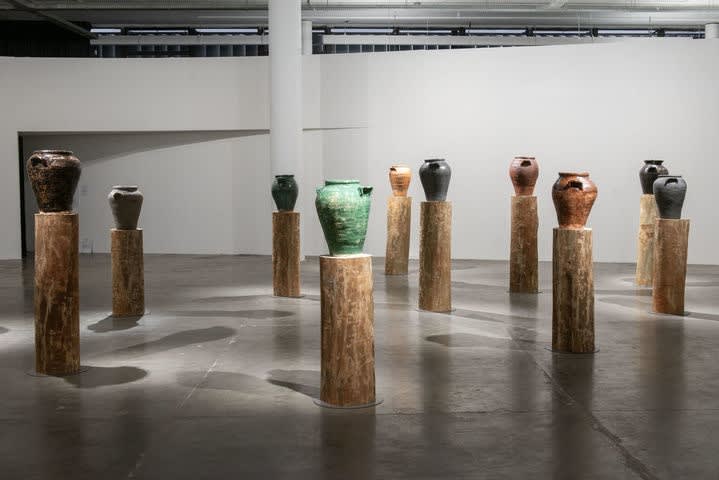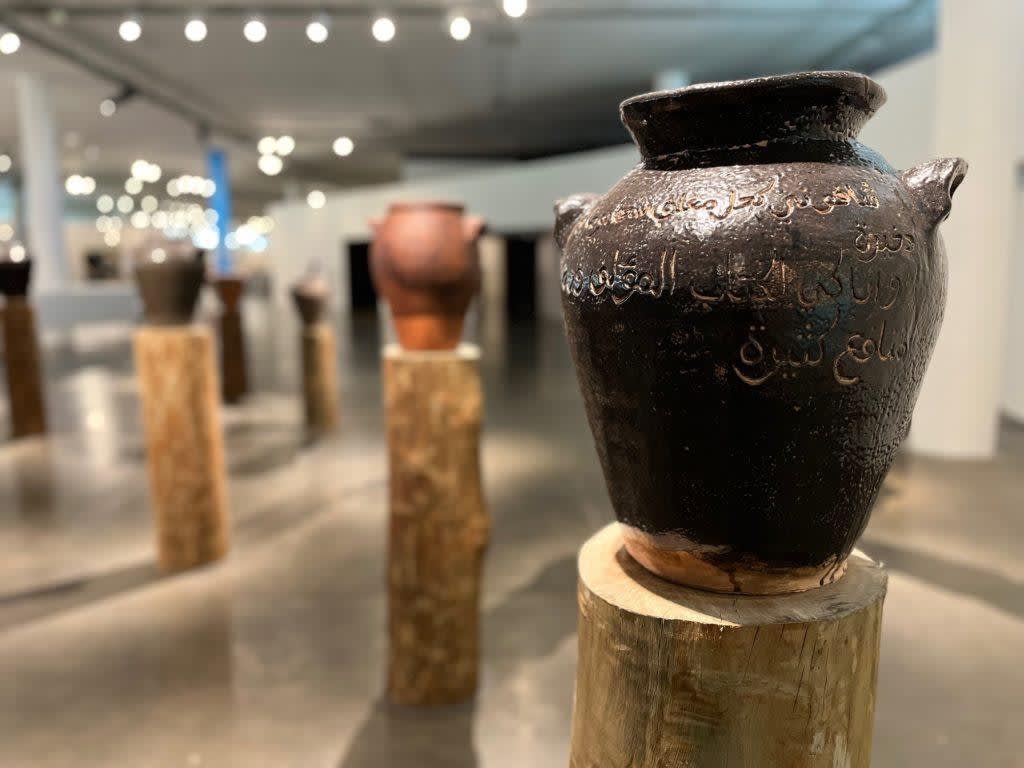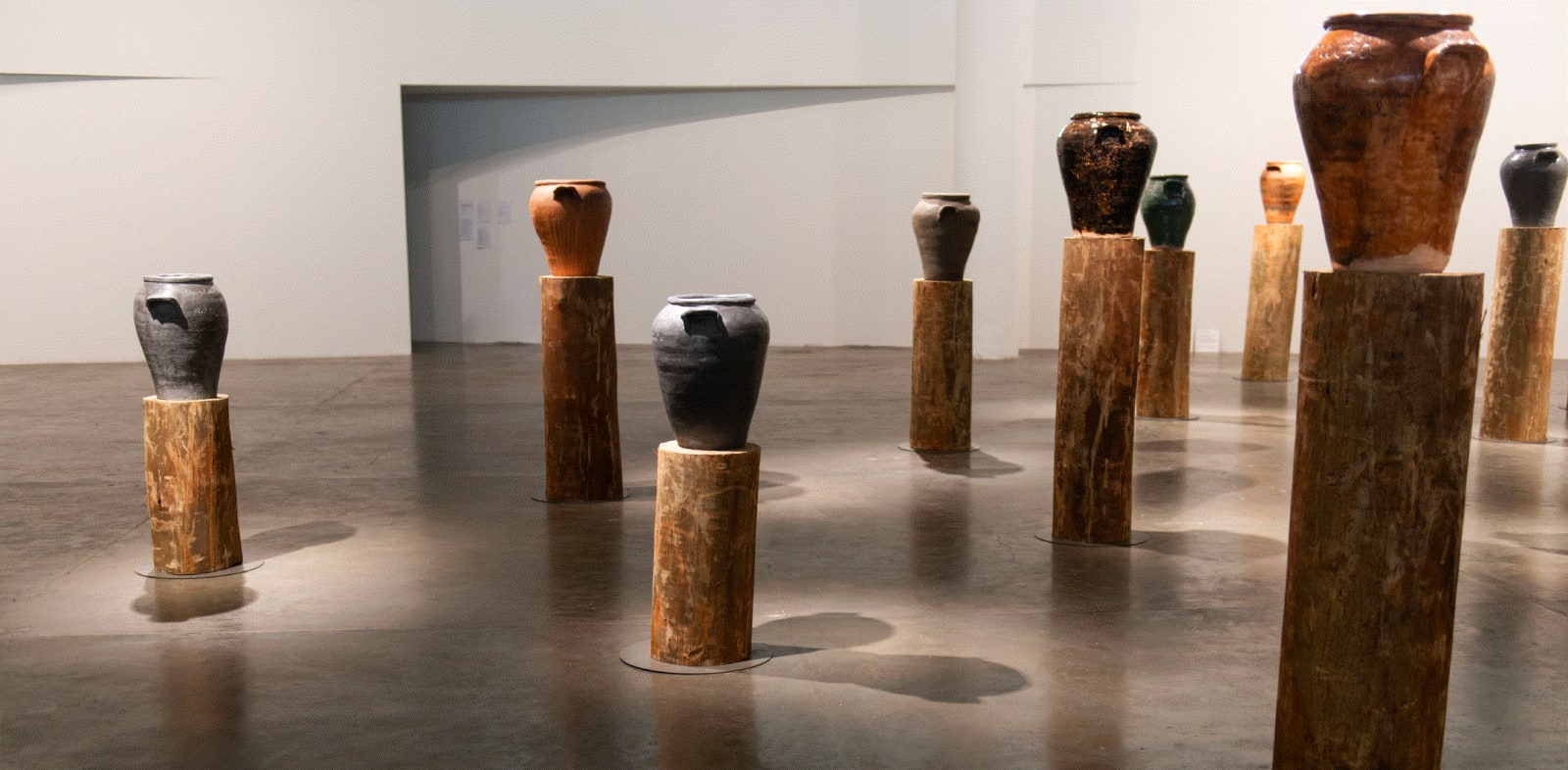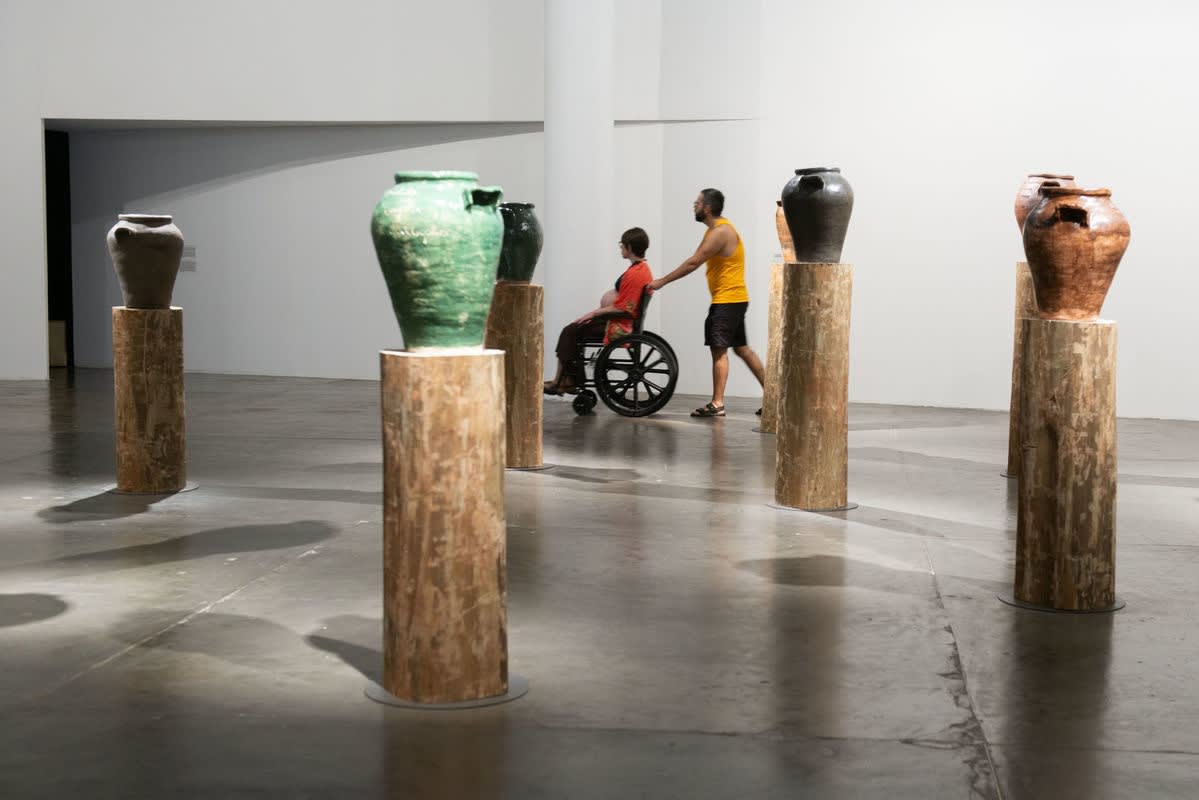M’barek Bouhchichi (Akka, Morocco, 1975. Lives in Tahanaout, Morocco) holds a bachelor’s degree in visual arts from the Centre Pédagogique Régional (Rabat, Morocco), and has been teaching art since the mid-1990s, first in Tiznit and now in Tahanaout. Through installations, paintings, drawings, and videos his work creates spaces for oppressed existences. He also archives traditional craft practices and foregrounds the act of making, as a way to question cultural hierarchies and established divisions of labor and value. His work has recently been exhibited at Dak’art (Dakar, Senegal), Savvy Contemporary (Berlin, Germany), Centre Pompidou (Paris, France), and Mu.Zee (Ostend, Belgium), among others.
The question of race is surprisingly absent from North African art production. For the last ten years, M’barek Bouhchichi has been elaborating forms and methods for tackling it. His point is not so much to confront the brutal reality of anti-Blackness racism. Rather, it is to reclaim the substance and rhythms of Black life which, for him, are primarily those of artisanal labor, most particularly in the Moroccan South-East: the textures of what Black hands make, the texture of time spent with families of craftspeople, listening to their words, watching their ritual reiterations of ancient gestures and their ethics of patience in the face of discrimination.
For Bouhchichi, these potters and blacksmiths are poets (in the Greek sense of the verb poiein, meaning “to make”). They creatively shape matter and breathe life into it. With their tactile mode of bearing witness to a history of racialization, they play a similar role as the Amazigh oral poets who, generation after generation, have consigned the lives of their communities in songs and recitations. Poetry is important to Bouhchichi’s practice. He has paid particular attention to M’barek Ben Zida, a Black poet-peasant who revolted against his status as a sharecropper in Southern Morocco. Bouhchichi has been collecting Ben Zida’s largely forgotten words and engraving them into sculptures. For the Bienal de São Paulo, Bouhchichi brings poetry and pottery together while bridging geographical gaps that keep the African diaspora scattered. Inspired by the work of US-enslaved potter David Drake (c. 1800-1870), he makes a series of vessels inscribed with verses by Black North African, Afro-Brazilian, and African American poets – like a score for an alternative dance of emancipation that does away with national boundaries as it stages conversations between Black hands on both sides of the Atlantic. With this work, the artist pursues his unlearning of Western art hierarchies while gesturing toward a world structured not by reaction to oppression, but by an active, poetic weaving of relations across languages and geographies.
omar berrada



